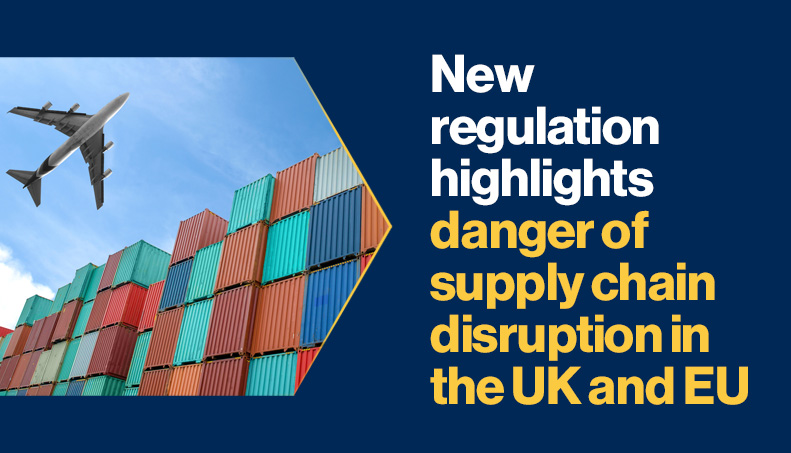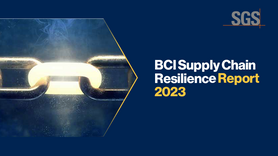New regulation highlights danger of supply chain disruption in the UK and EU

Starting today, the long-delayed Border Target Operating Model (BTOM) comes into force in the UK. The legislation requires health certificates on all medium- and high-risk products imported from the EU, such as meat, dairy, fruit, vegetables, and plants.
Moreover, the further introduction of physical checks at the border will come into force on 30th April, marking one of the biggest changes to the way the UK imports food and plant products from the EU since leaving the single market. Under these new border rules, the government requires importers to notify the UK authorities at least a day before they arrive at a border post.
Concerns about new laws and regulations were raised by 40.5% of participants of the BCI Supply Chain Resilience 2023 survey, representing the fifth biggest concern for organizations in 2023. This latest legislation again highlights the need for organizations to work on resilient strategies, placing particular importance on the mapping of their supply chains and key suppliers.
Consequences of new legislation
BCI research shows that the main consequences of supply chain incidents/disruptions experienced by organizations in 2023 has been the increased cost of working, loss of revenue, loss of productivity, and loss of customers.[1] We can also see these issues affecting suppliers and customers because of the implementation of new rules in the meat, dairy, fruit, vegetable, and plant sectors.
Indeed, meat businesses are warning about possible disruptions as EU operators struggle to fulfill the new requirements. According to the British Meat Processors Association (BMPA), there is a lack of veterinary capacity in many EU exporting countries to sign the new certificates[2], making it more difficult to import products and causing delays and shortages. The BMPA said that there is a worrying lack of preparedness by EU exporters that could shock the UK food supply chain, given that it relies on imports for 22% of its beef, 21% of its sheep meat, and almost 50% of its pork – most of which comes from the EU.
In addition, the added cost of these measures could mean reduced choice of products for consumers as some traders leave the market. This may particularly impact specialist meat and cheese suppliers. According to the UK government, the extra costs of border checks and certification requirements could mean £330m a year of extra expenses for businesses.[3]
Although industry organizations expressed concerns over the consequences that the new regulations could have on the industry, such as delays and extra costs, others said they would help UK farmers be more competitive.[4]
Resilient strategies
In this new landscape, there is a renewed impulse to implement resilience strategies and lessons learned during the COVID-19 pandemic, such as the implementation of back-up suppliers, nearshoring or finding local suppliers, and especially the need to map suppliers beyond the first tier. Food retailers, wholesalers, manufacturers, processors, and farmers alike should determine how the new operating model and physical checks will affect them, and the plans they need to make to mitigate any operational or financial disruption.
Citations
[1] https://www.thebci.org/resource/bci-supply-chain-resilience-report-2023.html
[2] https://www.fwi.co.uk/business/new-border-controls-to-disrupt-meat-supplies-warn-traders
[3] https://www.theguardian.com/politics/2024/jan/31/new-brexit-food-checks-likely-to-mean-less-choice-warn-delis
[4] https://www.bbc.co.uk/news/business-68126880







































